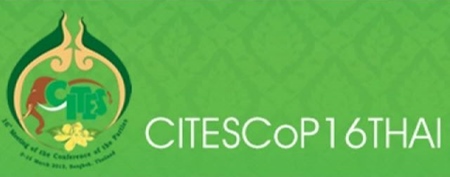BANGKOK, March 14 – The Convention on International Trade in Endangered Species (Cites) today announced success in protecting various species of endangered animals and plants from extinction.
At the closure of the 16th Cites meeting, secretary general John E. Scanlon said the convention accomplished in putting varied animals and plants on Appendix 2 to ensure that they will be conserved given rapidly growing harassment and encroachment by human beings.

Five species of shark, sting rays, agarwood and Siamese rosewood or payung trees have been placed on Appendix 2 at Cites’ approval.
He said the problem of elephant tusk and rhino horn trading has improved in light of cooperation from related countries but the crackdown on international trade must continue.
In his closing speech, Thai Minister of Natural Resources and Environment Preecha Rengsomboonsuk said Thailand is willing to follow agreements in the meeting while Thai laws will be revised to seriously suppress hunting and trading of wild animals.
Freeland Foundation executive director Steve Galster, however, expressed disappointment and said member countries tended to compromise rather than declaring tough suppression of hunting and trading of wild animals especially elephants, rhinoceros and tigers.
He complimented Thailand for its clear announcement to stop trading of elephant tusks but said the ban should include tusks of domesticated elephants.
South Africa will host the 17th Cites meeting in 2016.




